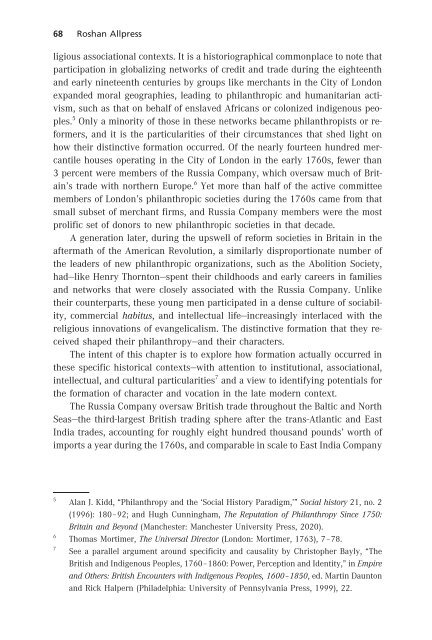Piet Naudé | Michael Welker | John Witte, Jr. (Eds.): The Impact of Political Economy (Leseprobe)
In our late modern pluralistic societies, there are tensions and complementarities between a plurality of individual and social claims and activities to shape societal life and a constructive pluralism of what is known as social systems. The latter provide normative codes and powers emanating from the areas of law, religion, the family, the market, the media, education, academic research, health care, defense and politics. A better understanding and steering of this complex division of powers is crucial for the common good and for freedom and peace. In this volume, a multi-disciplinary team of experts from Germany, Italy, Australia, the UK, the USA, and South Africa bring their conceptual, empirical and historical insights to bear in three broad sections: »The moral dimension of social systems«; »The interaction of religion, law and education with political systems«; and »The moral (mal)-formation evident in case studies on the global financial crisis and social media«.
In our late modern pluralistic societies, there are tensions and complementarities between a plurality of individual and social claims and activities to shape societal life and a constructive pluralism of what is known as social systems. The latter provide normative codes and powers emanating from the areas of law, religion, the family, the market, the media, education, academic research, health care, defense and politics. A better understanding and steering of this complex division of powers is crucial for the common good and for freedom and peace.
In this volume, a multi-disciplinary team of experts from Germany, Italy, Australia, the UK, the USA, and South Africa bring their conceptual, empirical and historical insights to bear in three broad sections: »The moral dimension of social systems«; »The interaction of religion, law and education with political systems«; and »The moral (mal)-formation evident in case studies on the global financial crisis and social media«.
You also want an ePaper? Increase the reach of your titles
YUMPU automatically turns print PDFs into web optimized ePapers that Google loves.
68 Roshan Allpress<br />
ligious associational contexts. It is ahistoriographical commonplace to note that<br />
participation in globalizing networks <strong>of</strong> credit and trade during the eighteenth<br />
and early nineteenth centuries by groups like merchants in the City <strong>of</strong> London<br />
expanded moral geographies, leading to philanthropic and humanitarian activism,<br />
such as that on behalf <strong>of</strong> enslaved Africans or colonized indigenous peoples.<br />
5 Only aminority <strong>of</strong> those in these networks became philanthropists or reformers,<br />
and it is the particularities <strong>of</strong> their circumstances that shed light on<br />
how their distinctive formation occurred. Of the nearly fourteen hundred mercantile<br />
houses operating in the City <strong>of</strong> London in the early 1760s, fewer than<br />
3percent were members <strong>of</strong> the Russia Company, which oversaw much <strong>of</strong> Britain’s<br />
trade with northern Europe. 6 Yet more than half <strong>of</strong> the active committee<br />
members <strong>of</strong> London’s philanthropic societies during the 1760s came from that<br />
small subset <strong>of</strong> merchant firms, and Russia Company members were the most<br />
prolific set <strong>of</strong> donors to new philanthropic societies in that decade.<br />
Ageneration later, during the upswell <strong>of</strong> reform societies in Britain in the<br />
aftermath <strong>of</strong> the American Revolution, asimilarly disproportionate number <strong>of</strong><br />
the leaders <strong>of</strong> new philanthropic organizations, such as the Abolition Society,<br />
had—like Henry Thornton—spent their childhoods and early careers in families<br />
and networks that were closely associated with the Russia Company. Unlike<br />
their counterparts, these young men participated in adense culture <strong>of</strong>sociability,<br />
commercial habitus, and intellectual life—increasingly interlaced with the<br />
religious innovations <strong>of</strong> evangelicalism. <strong>The</strong> distinctive formation that they received<br />
shaped their philanthropy—and their characters.<br />
<strong>The</strong> intent <strong>of</strong> this chapter is to explore how formation actually occurred in<br />
these specific historical contexts—with attention to institutional, associational,<br />
intellectual, and cultural particularities 7 and aview to identifying potentials for<br />
the formation <strong>of</strong> character and vocation in the late modern context.<br />
<strong>The</strong> Russia Company oversaw British trade throughout the Baltic and North<br />
Seas—the third-largest British trading sphere after the trans-Atlantic and East<br />
India trades, accounting for roughly eight hundred thousand pounds’ worth <strong>of</strong><br />
imports ayear duringthe 1760s, and comparableinscale to East India Company<br />
5<br />
6<br />
7<br />
Alan J. Kidd, “Philanthropy and the ‘Social History Paradigm,’” Social history 21, no. 2<br />
(1996): 180–92; and Hugh Cunningham, <strong>The</strong> Reputation <strong>of</strong> Philanthropy Since 1750:<br />
Britain and Beyond (Manchester: Manchester University Press, 2020).<br />
Thomas Mortimer, <strong>The</strong> Universal Director (London: Mortimer, 1763), 7–78.<br />
See aparallel argument around specificity and causality by Christopher Bayly, “<strong>The</strong><br />
British and Indigenous Peoples, 1760–1860: Power, Perception and Identity,” in Empire<br />
and Others: British Encounters with Indigenous Peoples, 1600–1850, ed. Martin Daunton<br />
and Rick Halpern (Philadelphia: University <strong>of</strong> Pennsylvania Press, 1999), 22.
















